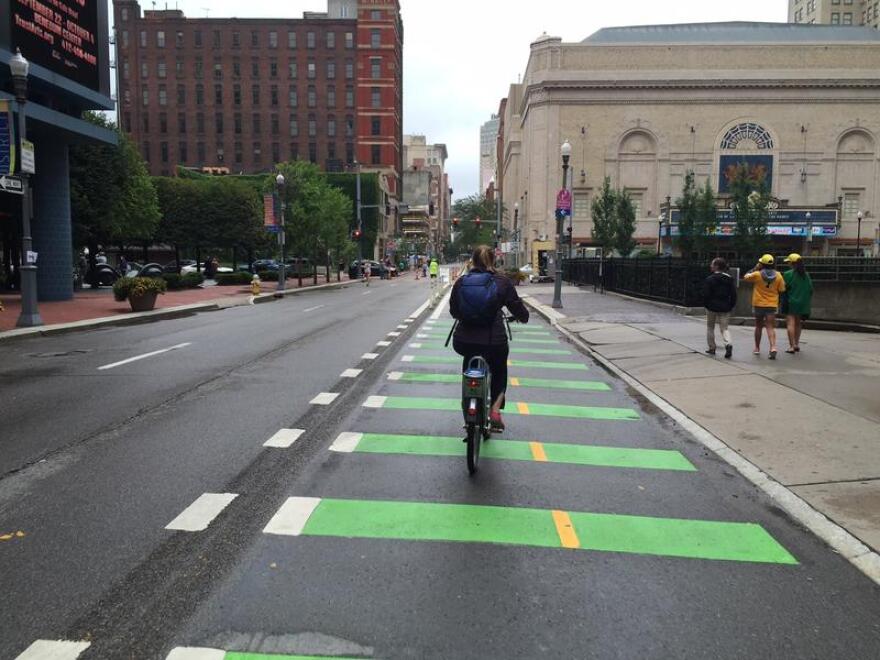Pittsburgh City Council on Wednesday will debate a heavily amended version of Theresa Kail-Smith’s Bike Lane Advisory Board legislation.
Last week, Kail-Smith asked that her legislation to be held for a week to allow council members to review the changes.
The amendments increase the number of advisory board members from 10 to 14, by adding an additional representative from the business community, a public safety representative and two mayoral appointees. It also removes the requirement that one member be a representative of Bike Pittsburgh. Instead it calls for two representatives from, more broadly, "bicycle advocacy organizations.”
Eric Boerer, advocacy director of Bike Pittsburgh, said his group supports the formation of the board, but wants to make sure the people who serve actually want to help.
“For instance, in San Francisco they require these appointments to actually submit an application showing their interest in it,” Boerer said. “I mean that’s a really simple way to do it. Almost like a job application. So you don’t want to have the appointee be some random person just to fill a seat basically.”
Boerer acknowledges the need for representatives from authorities and departments, including the Task Force on Disabilities and the Department of Public Works.
“But often what can happen is that the other committee members could be just people who don’t really want to be there,” Borer said. “We just want to make sure the people on the committee are active and contributing and knowledgeable about the subject too.”
The amended version also includes a provision to determine if the board is still necessary three months after the first meeting of the Complete Streets Commission. It also calls for the board to work with PennDOT and Philadelphia to build statewide bike infrastructure code.
The powers and duties of the board would also be expanded under the amendments to include, among other things, a focus on safer routes to schools and businesses, a need to create “an inclusive process for all stakeholders” and a reduction in the time needed for council review of any bike infrastructure installation from 120 days to 45 days.
Kail-Smith did not expand on her reasoning for the changes other than to say she is trying to “incorporate everyone’s concerns the best we can. You know, we’ve been talking with folks and incorporated a lot of their suggestions into the amended version.”




